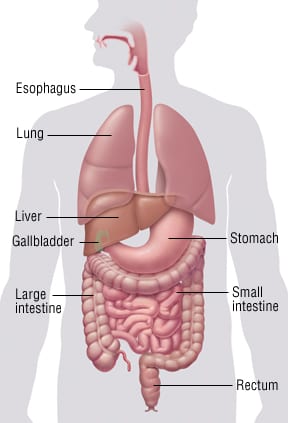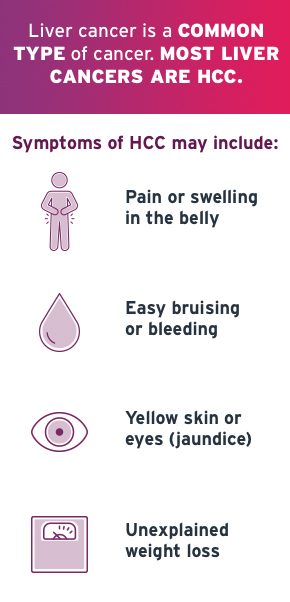Liver Cancer Symptoms – What Are the Most Common Symptoms of Liver Cancer

Liver cancer doesn't usually produce immediate symptoms, except for when the tumor is very large, pushing through other organs or the liver itself. Sometimes, symptoms may appear later from tumor originating elsewhere in the body, such as in the kidney or pancreas. However, it usually takes months or years for this to occur.
When liver cancer does occur, they can include: sudden changes in diet and body weight
Some symptoms of liver cancer include loss of appetite, weakness, nausea, vomiting, blood in stools, pain or tenderness in the abdomen, chest, or pelvis, and a yellowish skin tone. Some types of liver cancer can also bleed and not cause overt symptoms.
Typically, the symptoms of liver cancer are not immediately recognized because the tumors are often very small and it is difficult to tell if they are cancer or not. To properly diagnose liver cancer, doctors will need to do a number of tests, including x-rays and blood tests. These tests can show abnormalities and abnormal cells. This will help determine if a person has liver cancer and if the tumor has spread to other parts of the body.
The type of cancer a person has can affect his or her symptoms. People with cancer tend to have more severe symptoms than people with benign tumors. For example, if a patient has liver cancer, an adrenal tumor, or colon cancer, they may have trouble producing bile in the liver, which can cause jaundice. Other symptoms may include muscle weakness, jaundice, and pain burning sensation in the abdomen. Other complications that can occur after surgery for cancer include bleeding and bruising, infection, scarring, fever, and chills.
Liver cancer is the third leading cause of death due to cancer in adults. It is the most common cancer among men, accounting for about 75 percent of all cases. Although men tend to develop liver cancer at a younger age than women, it is more likely to develop in men. People who live an active lifestyle and are overweight are at greater risk for developing liver cancer.
The following are the most common symptoms of liver cancer. The most important thing for a person to remember when experiencing any or all of them is to visit their doctor to get a proper diagnosis for the condition.

Although it is rare, there are situations where a patient may not be able to get a proper diagnosis and the cancer may still be in its early stages, such as when there is no sign of cancer or if the tumor is still growing. When a doctor suspects that a person has a potential problem with their liver, they will usually schedule further testing to determine the extent of cancer in the body. At times, the patient will receive a treatment that will either prevent cancer from spreading or slow down its growth.
The sooner the person who has the condition is diagnosed, the better the chance that he or she will be successful in preventing liver cancer. Treatment options include surgery, chemotherapy, or radiation. If surgery or radiation is recommended, they must be considered the last option and only if all other treatments have failed.
As mentioned earlier, surgery is often the first treatment option used to treat cancer in the liver. However, many patients with the condition report that they feel a lot more comfortable with having the procedure done by a surgeon. This is due to the fact that the operation is less invasive and it does not require a lot of recovery time. The surgery can either be laparoscopy, which is an open procedure that requires the use of laparoscopy, or laparotomy, which is an incision into the liver.
Chemotherapy is another treatment option that may be used for treating liver cancer. It works to kill cancer cells while at the same time slowing down the cancer's ability to spread to other parts of the body. Chemotherapy drugs like tamoxifen and prednisone are used to stop the spread of the cancer to surrounding tissues. Another type of chemotherapy is called immunotherapy, which uses drugs, like steroids, to attack cancer cells that have already developed in the liver or brain. In this case, the patient must take a break from taking the medicine for a period of time before starting the drug therapy again.
Another complication of liver surgery that has to be monitored closely is bleeding after the surgery. In some cases, blood clots may form in the lungs, which may require more surgery. There are different kinds of aortic valve surgery, depending on how extensive the surgery is to remove the tumor. One type of aortic valve surgery is known as a myectomy, while another is called a distral valve myectomy.
